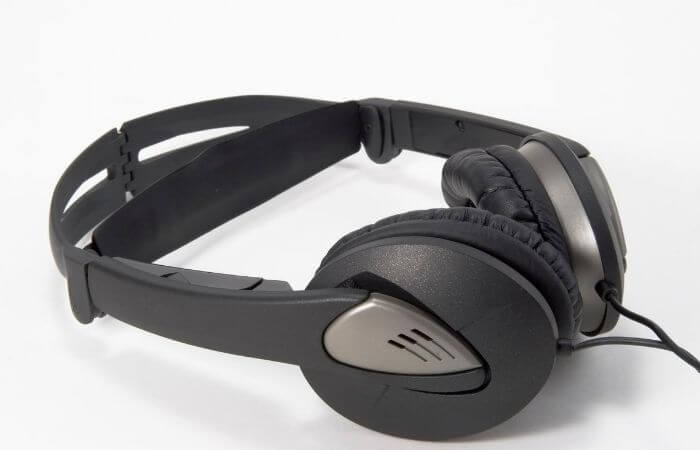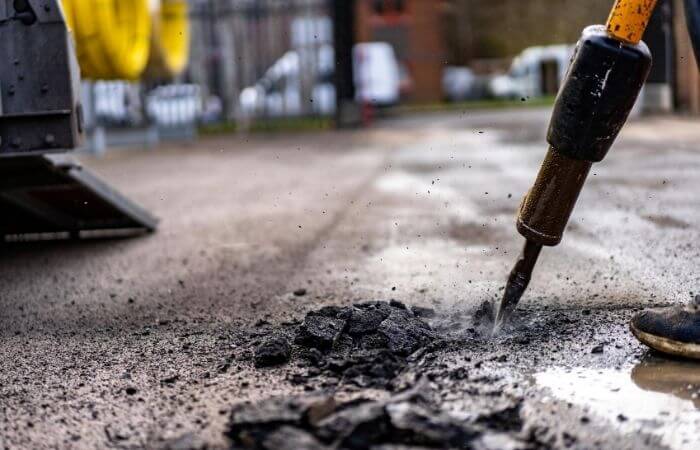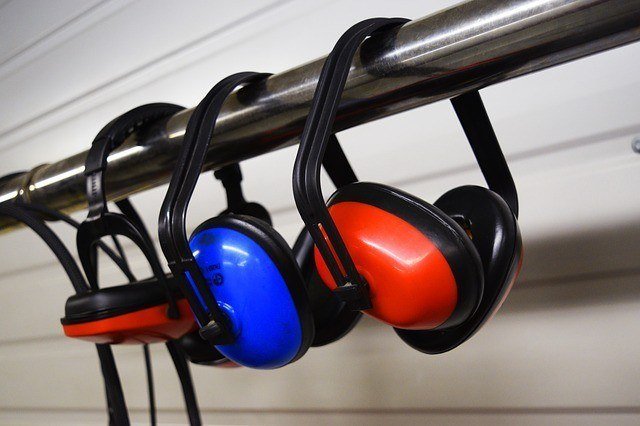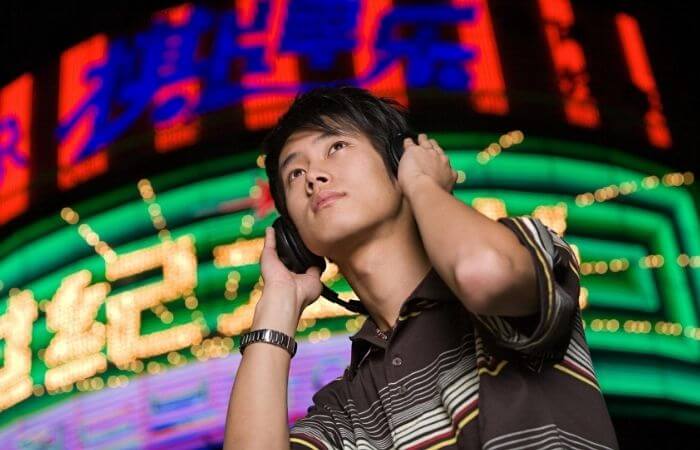Yes, noise-canceling headphones play a role in protecting your hearing but their effectiveness will depend on the situation you are in.
Noise-induced hearing loss is a big problem in our busy world.
Our ears are regularly exposed to dangerously high decibels but wearing noise-canceling headphones is an easy way to protect your hearing.
How Can Noise-Canceling Headphones Help Prevent Hearing Loss?
According to the World Health Organization 1.1 billion teenagers and young adults are at risk of hearing loss due to exposure to damaging levels of sound through personal audio devices and noisy venues such as nightclubs and sporting events.
Noise-canceling headphones reduce the need to turn up the volume on personal devices to dangerous levels and can reduce the amount of noise exposure experienced in loud environments.
Understanding the Two Types of Noise-Canceling Headphones
Passive noise-canceling headphones act like soundproofing for your ears, they use material to physically stop the sound from reaching your ear canal.
They are worn by airline pilots as they provide a good level of overall protection.

They are not particularly great at isolating low-frequency sounds but you can expect protection from mid and high-frequency sounds such as a baby crying or dog barking.
In summary, passive noise cancellation headphones are able to protect your hearing to some extent and are generally effective against all types of noise including sudden, impulsive noises such as the noise of a firework, gunshot, or heavyweights being dropped in a gym.
Active noise-canceling headphones measure the sound waves of external noises and creates the opposite sound so the noises cancel each other out before they reach your ear.
Due to the way the active noise cancellation works they need time to work meaning they are more effective against constant noises such as the hum of traffic or an airplane engine.
Active noise-canceling headphones are most effective when the sound is consistent and remains at more or less the same volume, you can even use them without music.
Unfortunately, this means they are not effective against loud impulsive noises as the technology isn’t able to work quick enough to cancel out these sudden sounds before they reach your ears.
Active noise-canceling headphones also need to have battery power in order to work, they are generally effective against low frequencies but aren’t great when it comes to high-frequency noises.
In summary, active noise-canceling headphones are a high tech option that are ideal for enjoying music without having to crank the volume up.
This is important for protecting your ears too as listening to music at high volumes is one of the key causes of hearing loss.
How Do Noise-Canceling Headphones Protect Hearing?
There are a couple of different ways these headphones can protect your ears.
- Passive noise-canceling headphones – these headphones create a seal to protect your ears from external sounds. They offer ear protection that is particularly well suited to people who work in loud environments but need to communicate with others, for example, pilots or people at construction sites operating heavy machinery.

- Active noise-canceling headphones – the main way active noise-canceling headphones protect your hearing is by reducing the need to crank up your music volume. Loud music can be incredibly damaging to your ears so by reducing the volume you reduce the potential damage to your inner ear. However, these headphones cannot protect your ears from sudden, loud sounds and they don’t form a protective seal around your ears.
If you are looking for protection against noise in a range of environments you should consider a pair of headphones that use both types of noise cancellation.
The NHS actually recommends using noise-canceling headphones as a way to prevent hearing loss by avoiding listening to music at dangerously high volumes.

Turning up music loud when trying to drown out outside noise is one of the biggest dangers to hearing.
Which Headphones Are Best for You?
The best type of headphones to protect your hearing will depend on the situations you are in.
The below list can give you a rough idea of what situations the headphone types are best suited to:
- If you are working in crowded offices, you are a regular commuter or you want noise-cancelling headphones that will block out gym noise then we’d recommend you go for active noise-cancelling headphones.
- If you are spending time at noisy markets, shooting ranges or places where you are going to be encountering sudden noises and high pitch noises then we’d recommend you go for passive noise-canceling headphones. Think of PNC headphones as a physical shield that can protect your ears from most noises.
Remember, you can also get noise-canceling headphones that use both technologies but these may cost more.
Also Read:
Noise Cancelling Headphones Vs Noise Isolating Headphones: Which Are Best?
Noise-Canceling Headphones Vs Protective Ear Muffs
Let’s clarify that noise-canceling headphones are not classified as professional hearing protection equipment. Common hearing protection devices include earmuffs and earplugs.
These are affordable options that can reduce the sound you are being exposed to. Let’s compare noise-canceling headphones and protective ear muffs in case you are trying to decide which is best for you.

Choosing between ear protection and noise-canceling headphones really depends on the noise you want to reduce, where you will be using the headphones and what you feel most comfortable wearing.
Protective ear muffs and passive noise-canceling headphones work very similarly. Both can provide good protection against noise in general but you should choose the option that is best for the job at hand.
If you are specifically looking for ear protection (for example you work in construction or somewhere where there’s a lot of noise) then it may be best to go for standard protective ear muffs.
Protective ear muffs will be able to protect your hearing from a wider range of noise and will block enough noise to reduce your exposure to a safe level.
If you are looking for noise-canceling headphones because you work in a loud environment, you may want to consider if wearing high tech (sometimes expensive) noise-canceling headphones is going to be suitable and worthwhile or whether you will risk damaging or losing them.
The good thing about noise-canceling headphones is that they can be a lot smaller in size and offer more mobility and comfort than the larger protective ear muffs.
If you are looking to protect your ears and enjoy music or podcasts at the same time, go for the noise-canceling headphones.
If your priority is protecting your ears from noise pollution and you’re not fussed about size or style then go for low-tech ear plugs or ear muffs instead.
Active vs Passive Noise Cancellation Headphones
If you are choosing between active and passive noise cancelation headphones, we have already discussed the main differences between them. To summarise:
- Active noise-canceling headphones use technology rather than physical material to block the sound, this means they are lighter and often more comfortable to wear.
- Passive noise-canceling headphones use soundproof padding to block the sound, this makes them bulkier but more effective against very loud and sudden sounds.
Do Active Noise-Canceling Headphones Impact Sound Quality?
If you want to listen to music while wearing noise-canceling headphones you may be wondering if the audio quality will be impacted by the headphone technology.
Active noise cancellation involves generating sound waves which requires battery power to work.

This often means that the sound quality is slightly compromised and is why many people prefer passive noise-canceling headphones when they want to continue enjoying high-quality music. This slight degradation of audio quality may not be noticeable if you aren’t sitting still listening to every note of the music.
However, if you will be listening to the music carefully you will likely notice the reduced quality.
With that said, it is usually not noticeable in the higher-performing, premium headphone models so that may be a good option for people looking for active noise reduction headphones that offer high audio quality too.
Are Noise-Canceling Headphones Safe?
Yes, noise-canceling headphones are safe to use.
They do not emit any dangerous radiation and can actually protect your ears from harmful noise.
However, if you play music at full volume you risk damaging your hearing.
Tips for Using Headphones
- Always use noise-canceling headphones when in loud environments
- Don’t turn up the audio volume above 80% and don’t listen to music at this level for any more than 90 minutes a day
- Use both headphones
- Don’t use noise-canceling headphones when cycling or driving or in a situation where you need to hear the sounds around you
Understanding Daily Noise
The Royal National Institute for Deaf People say that long exposure to sounds over 80dB(A) can damage your ears. To put this into perspective, the following are sound levels of common noises:
- Casual conversations – 60 decibels
- Power drill – 88 decibels
- Conversations and loud parties – 95-100 decibels
- Power mower – 97 decibels
- Road drill – 106 decibels
- Jet engine – 140 decibels
The amount of time you can be safely exposed to these noises decreases as the decibels rise.
You can be exposed to 60dB conversation for 12 hours without experiencing risk (aside from irritation) but you shouldn’t be exposed to a road drill for more than 7.5 minutes as the loud noise can cause harm.
The Health and Safety Executive actually have a daily and weekly noise exposure calculator so you can work out how much noise you are being exposed to on a regular basis.
In Conclusion: Noise-Canceling Headphones to Protect Hearing
Noise-canceling headphones can help protect your hearing but they are not protective ear muffs so don’t expect too much from them.
They can also cause damage if you play music too loud when wearing them so take care.
It’s important to remember that not all headphones are created equally and noise-canceling headphones don’t offer a noise reduction rating (NRR), a number which is found on hearing protection equipment as they need to adhere to a specific standard.
Noise-canceling headphones are perfect for enjoying your music or podcasts without needing to turn up the volume to dangerous levels in an attempt to drown out external noise.
As an Amazon Associate I may earn a small fee from qualifying purchases at no extra cost to you. This helps us run the site, so thanks for your support!